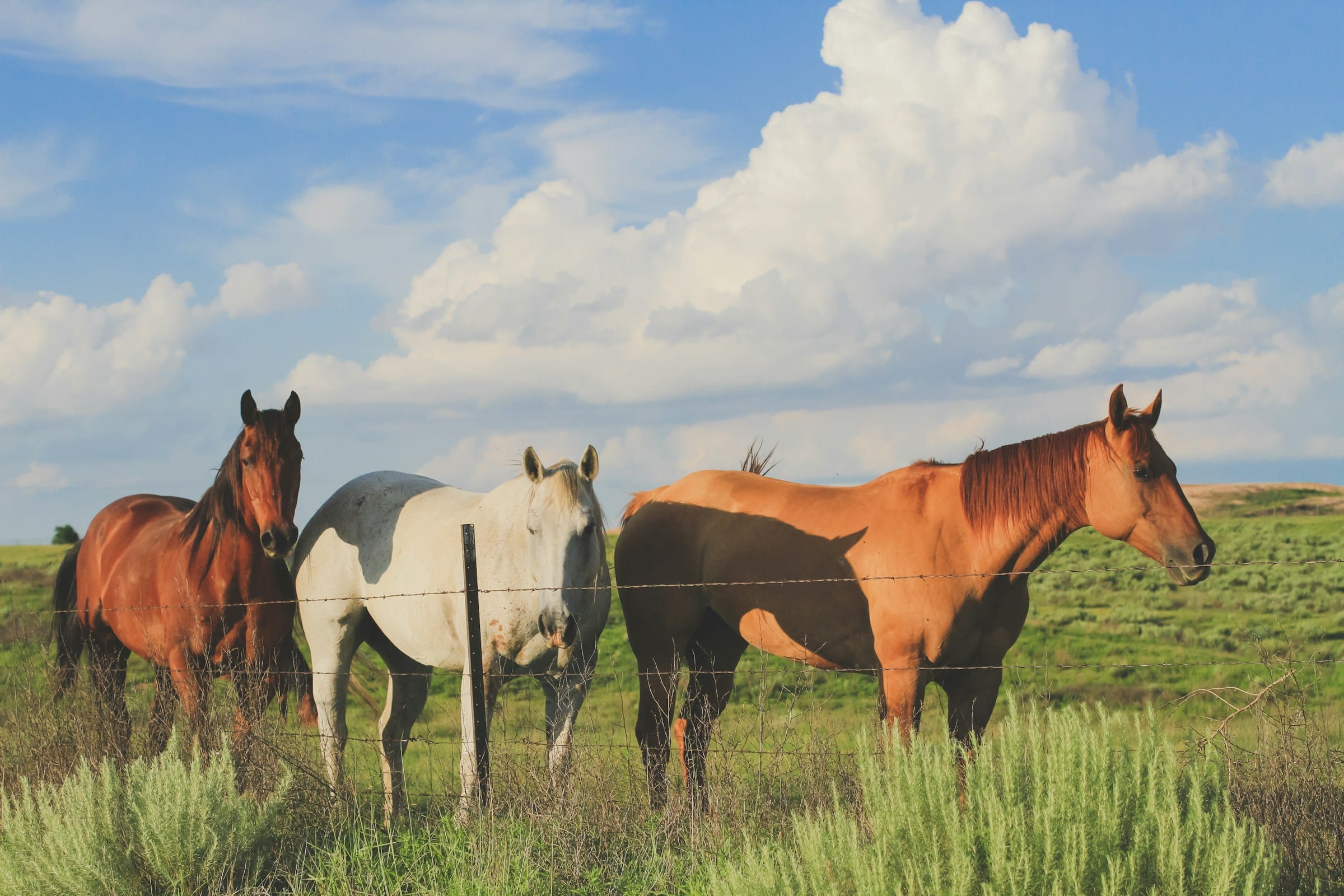How Can AI Help UK Farmers with Livestock Health Monitoring?

Agriculture has always been the backbone of the UK economy, and livestock farming plays a crucial role in this sector. As modern challenges emerge, farmers are turning to artificial intelligence (AI) to enhance animal health and overall farm management. This article delves into how AI can revolutionize livestock health monitoring and aid UK farmers in maintaining animal welfare and productivity.
The Intersection of AI and Livestock Farming
Understanding the synergy between AI and livestock farming is essential. The introduction of AI into the farming industry is not just about technology; it’s about integrating machine learning, big data, and predictive analytics to enhance every aspect of livestock management.
Have you seen this : What Are the Advantages of AI-Driven Predictive Analytics in UK Healthcare Management?
Leveraging Data for Improved Livestock Health
In the modern era, data is an invaluable asset. Data-driven farming allows farmers to make informed decisions based on real-time insights. Precision livestock farming utilizes big data to monitor individual animal health, thus ensuring prompt interventions when necessary.
AI systems can analyze a plethora of data points, including feeding patterns, body temperature, and activity levels. This constant health monitoring enables early detection of illnesses, reducing the risk of disease outbreaks that could devastate an entire herd. Machine learning algorithms can predict health issues before they become severe, allowing farmers to take preventive measures.
In the same genre : What Are the Best Strategies for AI-Enhanced Fraud Detection in UK E-commerce?
Enhancing Animal Welfare
Animal welfare is more than a moral obligation; it directly impacts productivity and the market value of livestock products. AI technologies enable continuous livestock monitoring, ensuring that the animals are in optimal conditions. Computer vision can monitor behavioral patterns, indicating stress or discomfort.
By implementing AI-powered monitoring systems, farmers can ensure that their animals have adequate space, proper nutrition, and are free from pain and distress. This approach not only improves the welfare of animals but also enhances production efficiency and profitability.
The Role of Predictive Analytics in Livestock Health
Predictive analytics is a game-changer in livestock farming. By analyzing historical and real-time data, predictive models can forecast potential health issues, enabling farmers to act proactively rather than reactively.
Real-Time Health Monitoring
Real-time monitoring is critical for maintaining animal health. With the use of AI, farmers can receive alerts about any abnormalities in the herd. This capability ensures that any signs of illness or distress are addressed immediately, minimizing the impact on the entire livestock population.
Wearable devices equipped with sensors collect data on vital signs, activity levels, and environmental conditions. This information is processed by AI systems, which can detect patterns indicative of health problems. For example, changes in a cow’s body temperature or movement patterns can signal the onset of mastitis. Early detection and treatment are crucial for maintaining dairy production and animal health.
Optimizing Veterinary Interventions
Veterinary care is vital for the health and welfare of livestock. AI can assist veterinarians by providing detailed health records and predictive analytics. This technology helps in diagnosing diseases, planning treatments, and improving recovery times.
AI can also prioritize veterinary interventions based on urgency and potential impact. By analyzing the data, AI systems can determine which animals require immediate attention and which can be monitored further. This optimization ensures that veterinary resources are used efficiently, improving the overall health of the herd.
AI Technologies Enhancing the Farming Market
The integration of AI in livestock farming is transforming the farming market. From improving supply chain management to increasing market size, AI offers numerous benefits that extend beyond the farm.
Precision Farming and Market Growth
Precision farming involves using AI technologies to enhance the efficiency and productivity of farming practices. By optimizing resource use and animal health management, precision farming can significantly increase market size and profitability.
AI-driven precision livestock farming ensures that animals are healthy, productive, and well-cared for. This approach leads to higher-quality livestock products, which are in greater demand in the market. Improved product quality can command higher prices, boosting the farming market and contributing to the overall economy.
Enhancing the Supply Chain
The supply chain in livestock farming is complex, involving multiple stages from farm to market. AI can streamline this process by providing real-time data on livestock health, production levels, and market demand. This information allows farmers and supply chain managers to make informed decisions that enhance efficiency and reduce waste.
By predicting market trends and consumer demand, AI helps farmers plan their production and distribution more effectively. This foresight ensures that the right amount of product reaches the market at the right time, reducing losses and maximizing profits.
Implementing AI in UK Livestock Farms
While the benefits of AI in livestock management are clear, implementing this technology requires careful planning and investment. UK farmers must consider various factors to successfully integrate AI into their farming practices.
Choosing the Right Technologies
There are numerous AI technologies available, each with its strengths and applications. Farmers must choose the technologies that best suit their needs and budget. Some of the most effective AI tools for livestock health monitoring include:
- Machine learning algorithms: These can analyze large datasets to identify health trends and predict potential issues.
- Computer vision systems: These use cameras and image analysis to monitor animal behavior and detect abnormalities.
- Wearable sensors: These devices collect data on vital signs and activity levels, providing real-time health insights.
Training and Support for Farmers
Integrating AI into farming practices requires training and ongoing support. Farmers need to understand how to use AI tools effectively and interpret the data they provide. Collaborating with technology providers and agricultural experts can help farmers build the necessary skills and knowledge.
Financial Considerations
While AI technologies can offer significant benefits, they also require an initial investment. Farmers must consider the costs of purchasing and maintaining AI systems. However, the long-term benefits, such as improved health outcomes and increased productivity, often outweigh the initial expenses.
Government grants and subsidies can also support farmers in adopting AI technologies. Understanding the available financial assistance can help farmers make informed decisions about investing in AI.
The Future of AI in Livestock Farming
As AI technology continues to evolve, its applications in livestock farming will expand. The future holds exciting possibilities for further improving animal health, welfare, and productivity.
Innovations on the Horizon
Emerging AI innovations, such as advanced machine learning models and enhanced computer vision systems, will provide even more accurate and detailed insights into livestock health. These technologies will enable farmers to monitor and manage their herds more effectively.
Additionally, AI will play a crucial role in addressing global challenges such as climate change and food security. By optimizing farming practices, AI can help reduce the environmental impact of livestock farming and ensure a sustainable food supply for the growing population.
Collaboration and Integration
The successful integration of AI in livestock farming will require collaboration between farmers, technology providers, and policymakers. Working together, these stakeholders can develop innovative solutions that benefit the entire farming industry.
Policymakers can support the adoption of AI by creating favorable regulations and providing financial incentives. Technology providers can continue to develop user-friendly tools that meet the specific needs of farmers. By fostering a collaborative environment, the potential of AI in livestock farming can be fully realized.
AI has the potential to revolutionize livestock health monitoring and transform the farming industry in the UK. By leveraging predictive analytics, machine learning, and real-time monitoring, farmers can enhance animal health, improve welfare, and increase productivity.
The integration of AI technologies in livestock farming offers numerous benefits, from optimizing veterinary care to enhancing the supply chain and boosting market size. While implementing AI requires careful planning and investment, the long-term advantages make it a worthwhile endeavor.
As AI continues to evolve, its impact on livestock farming will only grow, offering exciting possibilities for the future. By embracing AI, UK farmers can ensure the health and well-being of their animals, meet market demands, and contribute to a sustainable and prosperous farming industry.
